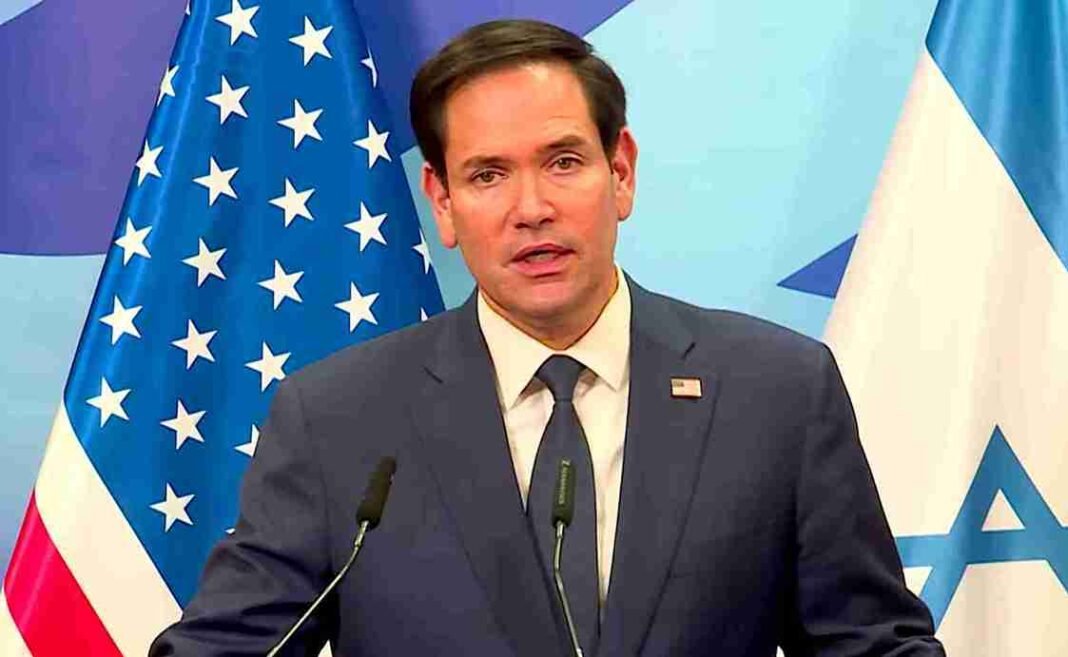The U.S. Secretary of State Marco Rubio met with Israeli Prime Minister Benjamin Netanyahu, marking his first official trip to Israel in his new role. Rubio expressed his deep appreciation for the opportunity to serve as Secretary of State under President Donald Trump, whom he described as an unwavering ally of Israel.
During his remarks, Rubio emphasized the strong bond between the United States and Israel, highlighting Trump’s commitment to the nation. “There has been no stronger ally for Israel in the White House than President Trump,” he stated, underscoring the administration’s dedication to Israel’s security and well-being.
Rubio also addressed the ongoing conflict in Gaza, advocating for a new approach that moves away from outdated strategies. He stressed the necessity of dismantling Hamas, stating, “Hamas cannot continue as a military or government force.” He argued that as long as Hamas remains a governing entity, peace in the region will remain elusive. “They must be eliminated. It must be eradicated,” he declared.
A key focus of the discussions was the urgent need for the release of hostages held by militant groups. Rubio reiterated that the return of these individuals is a priority for the U.S. government, stating, “They need to be released. That must happen. It’s not optional.” He assured Netanyahu that the U.S. would work closely with Israel to achieve this goal.
The Secretary of State touched on broader regional issues, including the situation in Syria. While acknowledging the potential for change following the decline of President Bashar al-Assad, he cautioned against replacing one destabilizing force with another.
“Syria replacing one destabilizing force for another is not a positive development,” he noted, emphasizing the need for a carefully crafted U.S. strategy in response to the evolving situation.
In Lebanon, Rubio reiterated the U.S. goal of supporting a strong Lebanese state capable of disarming Hezbollah, a group he described as a significant threat to regional stability. He linked these challenges to a common source of instability: Iran.
“Iran is the single greatest source of instability in the region,” Rubio asserted, pointing to the Iranian regime’s role in supporting various militant groups and acts of violence across the Middle East. He emphasized that the Iranian people are victims of their government, which he characterized as a regime that lacks popular support.
Rubio’s remarks included a firm stance against the prospect of a nuclear Iran, stating, “There can never be a nuclear Iran.” He reiterated the administration’s commitment to preventing Iran from acquiring nuclear capabilities, which he argued would allow the regime to act with impunity.
Concluding his address, Rubio reaffirmed the United States’ unwavering support for Israel, commending the nation for its resilience and commitment to democracy. He praised Israel’s founding story, which emerged from the aftermath of the Holocaust, and highlighted its role as a beacon of pluralism and free enterprise in the Middle East.
“It is an extraordinary story of bravery,” Rubio said, expressing admiration for Israel’s ability to thrive despite ongoing threats. He articulated a vision for the region where more countries emulate Israel’s democratic values, suggesting that such a transformation would lead to a safer world.
Rubio’s visit underscores the Trump administration’s commitment to strengthening ties with Israel and addressing the complex challenges facing the region.
As he concluded his remarks, he assured Netanyahu and the Israeli people of the U.S.’s steadfast support, stating, “You can always count on us as long as I am in this position and President Trump is in the White House.”
This visit marks a continuation of the U.S. policy of strong support for Israel, reflecting the administration’s strategic interests in the Middle East and its commitment to countering threats from militant groups and hostile regimes.








